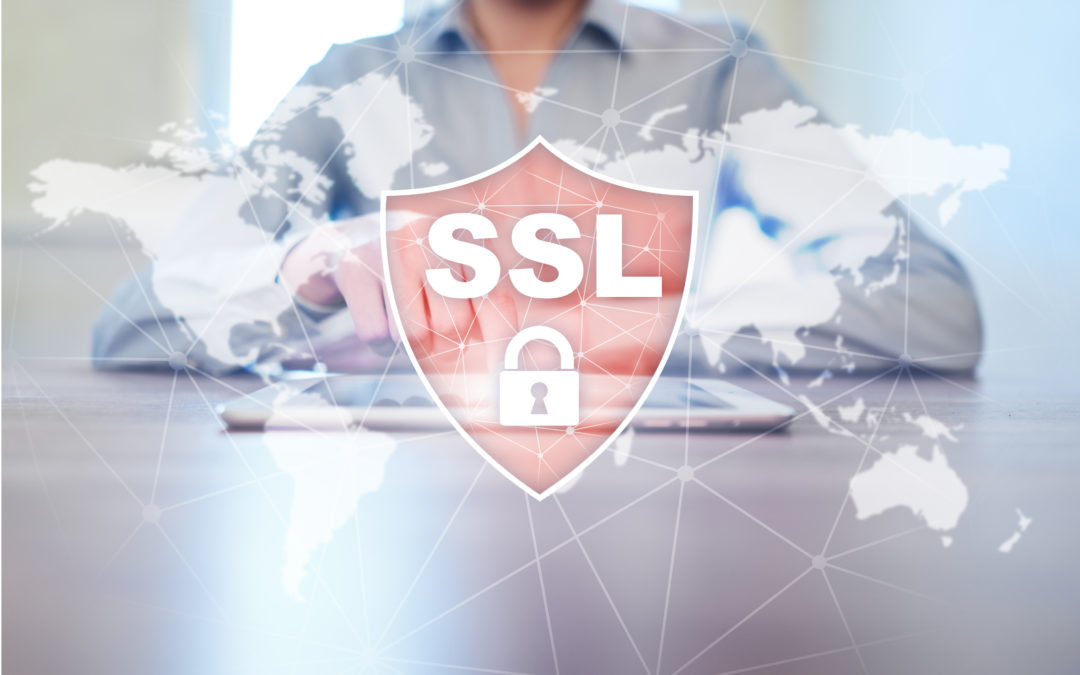“Warning – your connection is not private.”
Not the words you want to see when trying to visit a website. And definitely not the words you want your visitors to see on yours.
You may think this only happens to people who try to visit nefarious websites or accidentally type in the wrong url. But unnerving messages like this appear for anyone attempting to visit a site that is not considered secure.
So, what makes a website “secure” – and what can you do to avoid your website traffic stopped in its tracks?
Ensure data security with an SSL certificate
Having an SSL (Secure Sockets Layer) certificate ensures information sent between a visitor and a website is protected. Web browsers, like Google, are increasingly restricting access to unsecured websites.
When a website has a basic “http” address, they do not have an SSL to ensure data protection. If the url does not begin with https (the *s* is the key), you may find a cautionary warning page that deters you from visiting the site and giving any information to the owner.
So, what kind of information could cybercriminals target? Contact information like email addresses, phone numbers, passwords, and credit card information is considered a lucrative commodity and are under constant threat. A simple form on a website could be a target to obtain identifying information. Sites that conduct e-commerce transactions or require logins to access are an even higher target due to the sensitive nature of the data they collect.
How are SSL certificates beneficial?
Imagine a client tries to visit your website and sees a dire warning telling them the site is not safe and asks if they are confident they want to proceed. You can lose their trust – and ultimately, their business.
An SSL certificate inspires confidence in your site and your brand. It proves that you take data security seriously and can be trusted with any information shared.
Without an https address, your site will appear outdated and will fail to stay competitive. Copy-cat sites can lure customers away and steal their information, all while appearing to be you. And even with an outstanding SEO strategy, you will lose any ranking on search engines due to a lack of confidence in your website.
Website security levels to consider
There are many things to consider regarding security levels when deciding to convert or build your website. Cost, level of security and other technical considerations can be overwhelming. Which type should you choose? Should you do it now or wait? Is it worth it to do it yourself or should you hire an expert? How do you handle Ecommerce encryption?
As the cybersecurity industry grows, there are more affordable options for businesses to choose from when considering SSL certificates for their websites. All levels include the same encryption but offer varying vetting and verification options.
- Extended Validation (EV SSL).
- The most strict, best for enterprise-level corporations needing strict security
- Organization Validated (OV SSL)
- Mid-level option, higher vetting process
- Domain Validated (DV SSL)
- Basic option, ideal for those needing an affordable and quick implementation
For the vast majority of businesses, the Domain Validated SSL is sufficient and the ideal choice for website security certification.
The certificate itself is available for website visitors and shows the name of the certificate holder, the serial number and expiration date, the holder’s public key and the digital signature of the issuing authority.
Without an SSL, you risk losing the trust and confidence of your customers, suffer from poor SEO rankings and potential cyber threats. Including SSL in your website planning is critical and the cost should be factored in.
Maintenance and mixed content issues
Choosing the right level of security is one step. You also need to take into account how to maintain your certificate and keep your website functioning properly after implementation.
While you can add an SSL certificate yourself, having an expert maintain and monitor this aspect of your website can relieve the added stress of doing it yourself.
Not only can a professional help you choose the right SSL for your business, they will keep track of when your certificate is due for renewal (sometimes every three months) and process that for you. They also consider and fix any errors that may occur when your http converts to an https address.
When media files are added to a website, they are given a specific url. If those images, videos and other mixed content have http addresses, the new https pages will display the media. They appear as broken links, error messages or white space because the secure page will not force the unsecured media to appear as it did before.
Don’t continue to risk your website security
You know you need to keep your website secure to keep your customers’ trust and continued business. Choose the right SSL certificate and change that http to https as soon as possible to stay competitive, rank higher and keep shared data safe for you and your customers.
Ask your website expert about SSL certificates and if they are included in your package.

